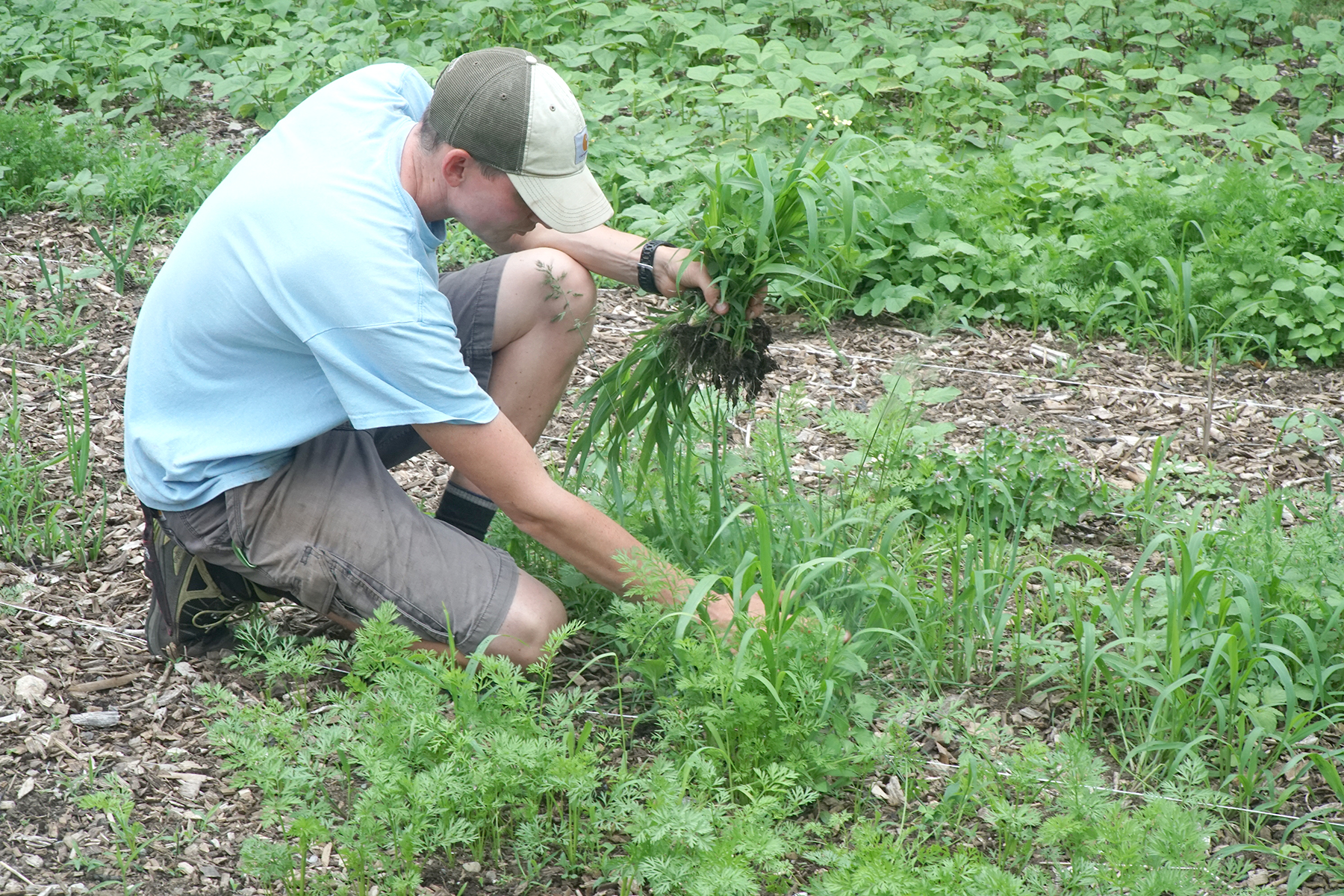To reflect on his first year as Director of the Natick Community Organic Farm, Casey Townsend sat down with me at a picnic table on the farm. “This is the first time I’ve sat down all week,” he said, “besides lunch.”
Formerly the NCOF Assistant Director, Townsend has worked at Land’s Sake Farm in Weston and the Trustees of Reservations, specializing in agriculture and youth education. In his role as NCOF Director, his tasks are manifold.
“There is no slow season,” Townsend said. “Maple season flows into birthing season, flower season, produce season, and the crops are still producing in November or December. There is a brief break for the holidays and then we’re getting ready for maple season again.” Lately the growing season has extended four weeks later into the fall, but this year it began four weeks late. “Everything’s shifting.”
One aspect of the farm that has not shifted much is the business model former Director Lynda Simkins established. “The system is very sustainable. We are a non-profit funded by selling our products. There’s no reason to change. I haven’t shaken the boat much,” said Townsend.
The products include flowers and produce, which are sold at the farm stand, the Natick Farmers’ Market, at the farm through Community Supported Agriculture (CSA) programs, the Heritage restaurant of Sherborn, and also at Brothers, Whole Foods, Tilly and Salvy’s Bacon Street Farm, and City Feed in Jamaica Plain. The farm also offers summer camps and youth farming programs during the year. “Lynda would say education is our greatest product.”
This year a record number of young people enrolled in the NCOF summer camp in weekly sessions from June 17 to August 23. Morning and afternoon programs are offered for ages 3.5 to 17. A youth apprenticeship program trains high school and middle school students through a two year program. The NCOF annual Harvest Dinner helps to fund the apprenticeship and the teen work crew. “The teens are integral to the operation. We have eight apprentices, and their energy is great. They are excited to be here.”
Running the summer camps and teen work crews requires a balance between work and rest, sun and shade, keeping their attention span in mind. “You can’t max out a crew of kids,” said Townsend. “Nobody wants to be out on 90 degree days. We’re never in the hoop house after 12:00.”
Several partnerships have been established to provide more opportunities for teaching and learning. Students from Keefe Tech who are studying horticulture come to the farm on Thursdays to work and learn, and other young farmers have connected with NCOF through Terra Corps and United Planet.
Because the farm does not rely on grants for funding, Townsend does not spend his time soliciting them. Instead, he has his hands free to work in the dirt, and if you look closely, the dirt is fascinating. A movement toward regenerative farming focuses on soil microbes, and Townsend practices natural farming techniques that nurture the native organisms in the soil.
“Agriculture is a major driver of carbon into the atmosphere,” said Townsend. Tilling releases a large amount of carbon, while No-Till farming aims to maintain the natural ecosystem of the dirt. The first step is close observation of the soil, including temperature and existing plants. Then a sheet of greenhouse plastic is laid on soil. “It chars the top quarter inch and kills the weeds.” Then compost is spread and seeds are scattered on the compost. “The biology is already there to funnel nutrients toward the plants,” said Townsend. “In tillage, there is a spike of nutrients, but the slow release of nutrients [of No-Till] is healthier for the plants.” Townsend has plans to expand the No-Till operation, which is currently used on the field closest to the farm entrance on the north side of the driveway. This field, after two years, has produced healthy, nutrient dense carrots, and the soil readings indicate a perfect balance.

Issue Date:
August, 2019
Article Body:
